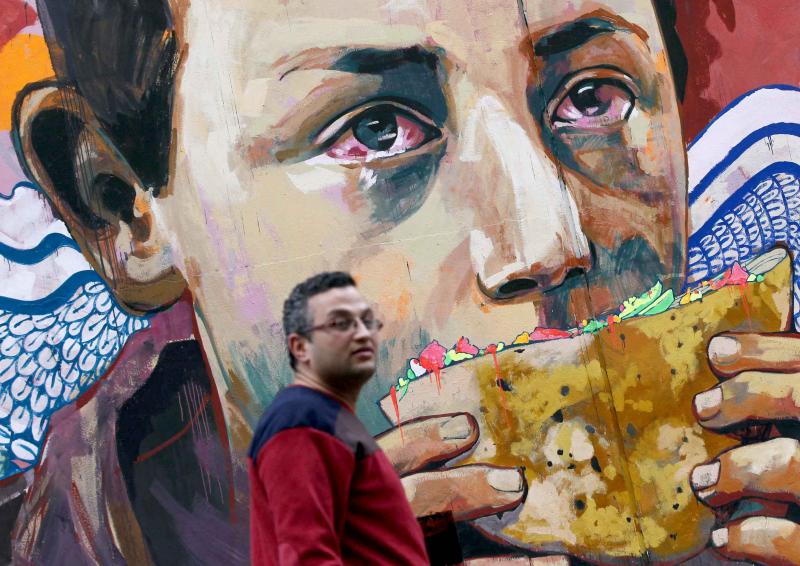The Arab Weekly
Mark Habeeb
A public opinion poll conducted in August and September indicated that many concerns and frustrations that sparked the “Arab spring” in 2011 continue to plague many Arab societies.
The poll by Zogby Research services surveyed 8,628 adults in Tunisia, Egypt, Lebanon, the Palestinian territories, Jordan, Iraq, Saudi Arabia and the United Arab Emirates as well as Turkey and Iran.
In six of the eight Arab countries, “employment” ranked first when respondents were asked to identify the most important issues facing their nation. In Egypt, “ending corruption” was first and “personal rights” was the highest-ranking answer in the United Arab Emirates. Other responses frequently mentioned included “education” and “political reform.”
Contrary to common wisdom about the strong yearning of Arab masses for more political freedom, “democracy” ranked far down the list of priorities for most Arab countries.
Even Tunisians, who have been most successful in democratic political transition since 2011, ranked “democracy” as their least important concern. That could be because they feel they have essentially achieved that goal. More likely, however, is their realisation, eight years after the uprising, they are not seeing the benefits of democracy in terms of their everyday lives.
In a similar Zogby poll in 2011, “democracy” ranked second among Tunisians’ priorities. Recent domestic surveys in Tunisia indicate that large majorities of respondents are sceptical — if not distrustful — of politicians.
“Democracy” was among the bottom three (of ten) priorities in every Arab country except the United Arab Emirates, where it ranked fifth. “Political reform,” however, ranked among the top three priorities in Egypt, the Palestinian territories, Jordan and Iraq (and fourth in Tunisia and Saudi Arabia).
Combined, these two responses suggest that, while many people in the Arab world desire political reform, they do not see it necessarily in the form of Western-style liberal democracy. Perhaps the governing chaos in many Western liberal democracies, as well as the perceived inability of democratic politics to improve the lives of people in the Arab world or to stem violence and chaos in the region, dulled the lustre of democratic political systems.
When asked whether their country was on the “right track” or the “wrong track,” most respondents in five of the eight Arab countries said “wrong” — with Tunisia (69%), the Palestinian territories (65%), Egypt (55%) and Iraq (52%) leading the way. Majorities of respondents in Saudi Arabia, the United Arab Emirates and — surprisingly — Lebanon said their countries were on the “right track.” Emiratis were the most optimistic at 80%.
A related question — “Are you better off or worse off than you were five years ago?” — yielded similar results. Tunisians, Egyptians and Iraqis resoundingly answered “worse off” (64% in Egypt, 59% in Tunisia, 55% in Iraq) while 68% of Emiratis polled said they are better off. In Saudi Arabia, 72% said they consider themselves better off or “about the same” as five years ago, as did 60% of Lebanese respondents.
One of the poll’s most disturbing results concerns levels of confidence in a country’s institutions. Majorities of respondents in Egypt, Tunisia and Iraq expressed a lack of confidence in every listed institution — military, police, judiciary, religious establishment, media and legislature. The highest score for any institution in Tunisia was for the judiciary (41%); the religious establishment was the most trusted institution in Egypt (50%) and Iraq (28%).
A cause of concern is the lack of confidence expressed in the military and the police in Tunisia, Egypt and Iraq: 59% of Egyptians said they are not confident in the military, despite its dominant role in Egyptian society and the fact that it was widely admired and lauded after orchestrating the ouster of former President Muhammad Morsi in 2013. A Zogby poll in 2013 indicated that 94% of Egyptian respondents said they supported the military. In Iraq, 80% expressed no confidence in the military, despite its role in defeating the Islamic State.
By contrast, respondents in Saudi Arabia and the United Arab Emirates stated the highest levels of confidence in their institutions — 80% or higher for each. Surprisingly, Palestinians expressed confidence in all of their institutions, although by lower percentages than in the Gulf states. In Jordan, only the media and the parliament scored negative numbers and in Lebanon, only the parliament.
Paul Salem, president of the Middle East Institute in Washington, speaking at an event to mark the release of the poll results, said “the [factors] we saw in 2011 have not gone away.”
He pointed out that the results from Tunisia and Egypt — two countries that followed “opposite tracks: one democratic, one authoritarian” — reveal that neither society is happy with its circumstances.








